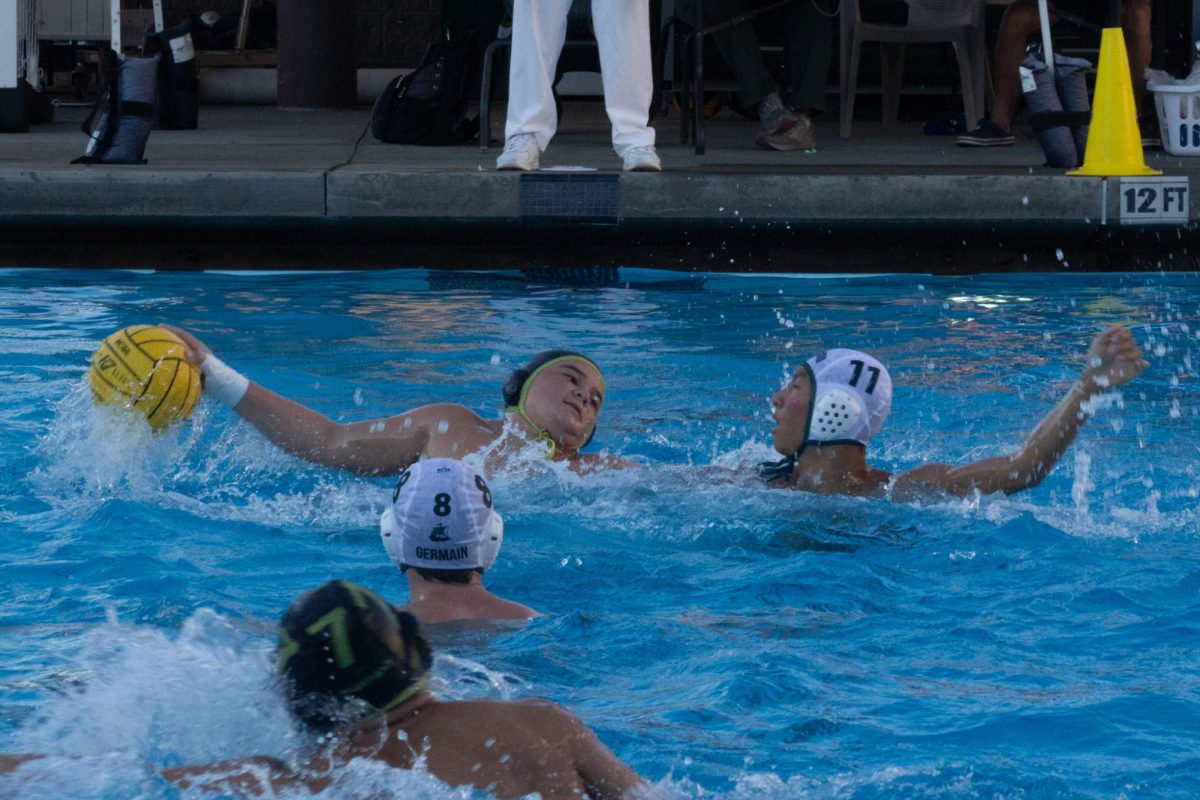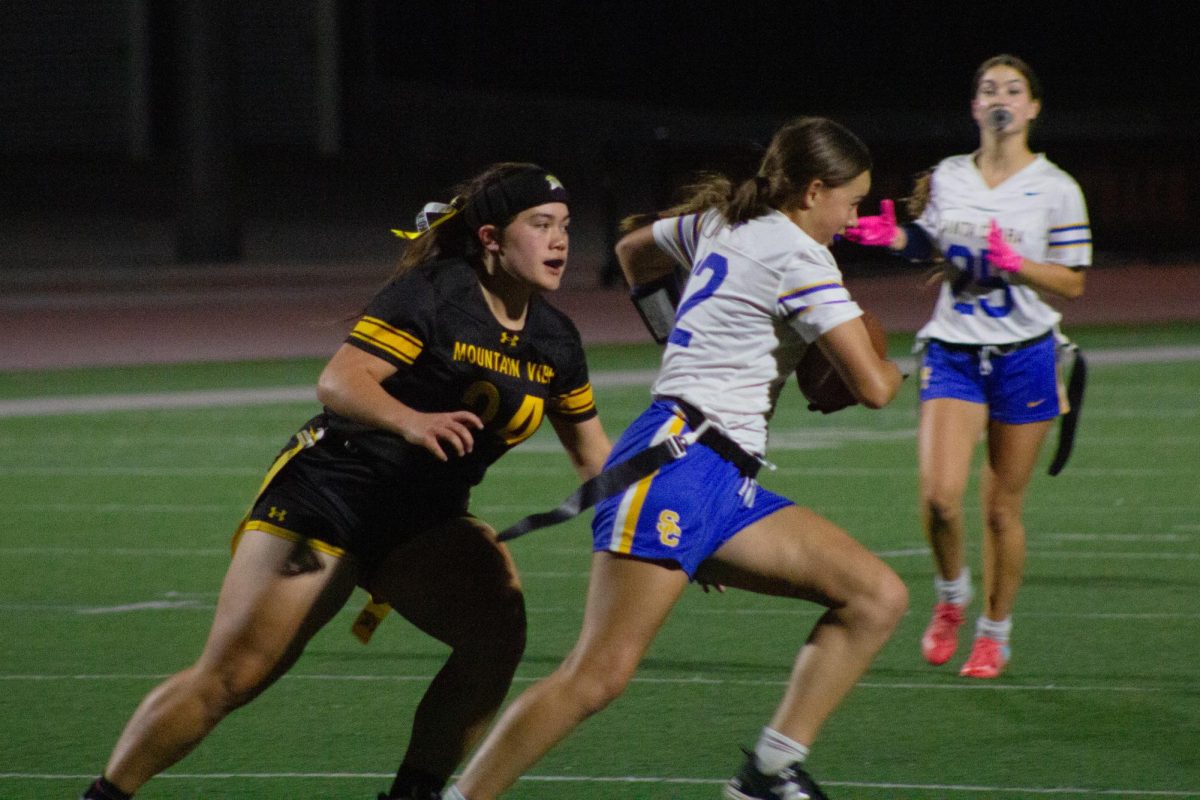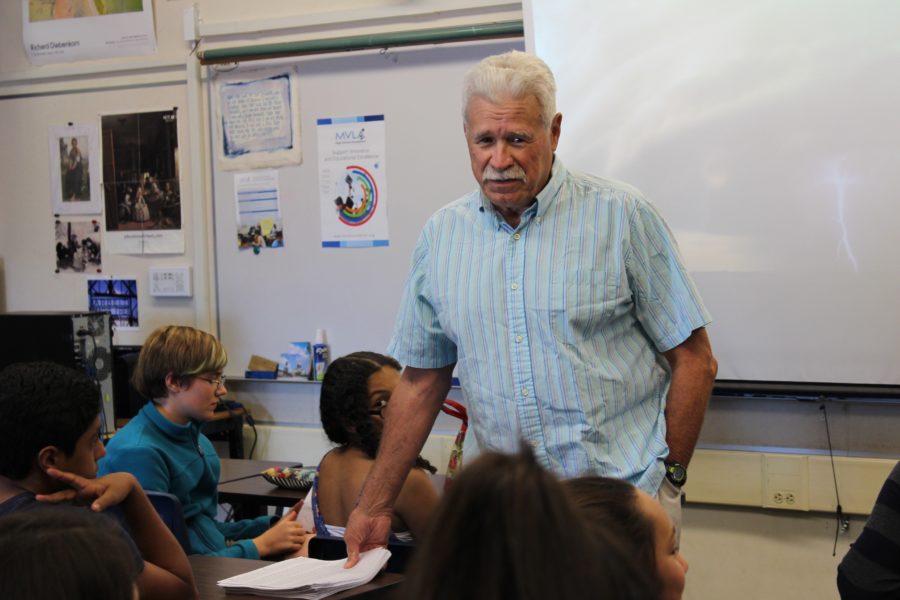History teacher Frank Navarro sent an open letter addressed to District Superintendent Jeff Harding on Friday, Jan. 27 asking for clarity on administration’s position on freedom of speech for teachers in the classroom. According to Navarro, he hopes that administration will “move out of the grey area” and be straightforward about what teachers may express in the classroom.
Staff and administration at both MVHS and LAHS received the email. Navarro said that teachers have generally responded in favor of transparency about the limitations of teacher discourse, but he has not received an answer from administration.
Harding said he has not decided on what to do in response to Navarro’s email. However, in regard to what teachers are not permitted to say in classrooms, he said that “there’s legal precedent…it may depend on the circumstance, and it may depend on the case law.”
According to the National Education Association, public employers cannot “punish their employees for engaging in constitutionally-protected free speech activities.” However, case law says that speech cannot be “disruptive of the workplace…or interfere with a student’s ability to get an education.”
After a previous incident during which administration allegedly suspended Frank Navarro for comments on Hitler and Trump, Harding sent an email to staff and students on the issue of free speech in schools. In the email, he wrote that “freedom of expression and academic discourse are the cornerstones of our schools and we encourage our teachers to help students process the election results.” When asked if he still stood by his previous statement, Harding said that his stance has not changed.
Navarro said freedom of speech should include “the ability to express issues in an intelligent manner that makes sense,” which may include anything except “vulgarity and profanity; those are outside the bounds.”
“It’s important to me to talk about [connections between historical and contemporary events] openly. How do we address these questions if we can’t talk about them openly and without concern?” Navarro said. “For me, it’s historically based and factual, and I just feel this need to inform my students…How do you teach if you’re looking behind you?”
According to Navarro, he would challenge administration if they were to prohibit free discourse for teachers in the classroom, but “they would have to put [their stance] in print and we would go from there.” Navarro said that he wants administration to take a de facto stance in support of the free speech of teachers despite case rulings, but would also be open to finding a middle ground with Harding.
Other teachers have also expressed concerns surrounding the limitations of classroom discourse. English teacher Tony Espinosa includes George Orwell’s novel 1984 in the class Expository Reading and Writing for seniors. According to Espinosa, much of what Orwell describes about the characteristics of authoritarian rule also reflect our current presidential administration’s policies.
“I am concerned about making comparisons from the book to our president’s administration and the things that they have said,” Espinosa said. “I don’t think there will be any problem, but I do want to ask administration [if this is okay]. I’m hoping they will understand that this is very topical and is discussed in very respectable news sources, and that it’s okay to make those comparisons.”
However, LAHS journalism and English teacher Michael Moul has indicated concern about Navarro’s stance in the email, which advocates for “unequivocal and unmitigated” free speech for teachers in classrooms.
“I think freedom of speech is hugely important in the classroom, but there are lots of rules that protect [students] from [teachers],” Moul said. “The 1st amendment exists to protect the student from the teacher, not to protect the teacher’s rights…The more a teacher shares his or her opinion, the more difficult it is for the students to express theirs.”
According to Moul, while critical thinking is an important component of any classroom, it doesn’t mean that teachers should be able to unconditionally express their viewpoints.
“I think [controversial topics] should be discussed; I think positions should be challenged; I think critical thinking should be promoted…but teachers should put students into situations where they can form their own conclusions.”
When asked for a response, Navarro emphasized placing trust in teachers and promoting the exchange of ideas.
“Trust the teacher. It begins and ends with trust—if a student hears something he or she doesn’t like, challenge the teacher, exchange ideas,” Navarro said. “What we have now is silence in exchange for not offending a young person. Are young people so fragile that the only words they must hear are ideas they agree with? How does intellectual growth take place if we only hear what we agree with?”
Navarro’s original email is pasted below:
Dear Jeff:
I am asking you take a position on freedom of speech for teachers and staff in our school district. My question: do we have freedom of speech? If we do, tell us, if not let us know as well. But one way or another announce to the staff and teachers whether or not we have the right to speak freely.
I am aware that case law does not grant secondary teachers freedom of speech. But as the superintendent of our school district you may grant it, you can go beyond case law. There is nothing to forbid it in our US Constitution or law which forbids granting teachers the right to practice free speech. In granting this fundamental human right to the educators of our district you also provide an incentive to further pursue intellectual rigor and assist students in critical thinking.
Free speech must be unequivocal and unmitigated; and done so without fear of an administrator entering the classroom to question the individual about what that person said. If a parent or student is offended then the administration should insist the parent come in to discuss the matter with the teacher. We should take the position Voltaire espoused, “I disapprove of What You Say, But I Will Defend to the Death Your Right to Say It”. The direct communication would be beneficial to the parent and teacher. Engagement is far preferable to enforced silence.
In asking you to declare that teachers and staff have freedom of speech, I am only asking that you enunciate comments that you have made many times with several news organizations, individuals, and the district. You consistently said you would never interfere with freedom of speech. You even told the social science department at Mountain View you were a graduate of University of California, Berkeley, birth place the “Free Speech Movement”. And while I am not asking you to become a Mario Savio, I am asking you to announce to the district what you have already spoken of, the significance of free speech. Grant free speech to the staff.
Or, announce to the staff and teachers that we don’t have the right to speak freely. If that is the case then It is only proper we understand that an uttered word may come back to haunt us, that we must self censor, or face the consequences, what ever they maybe. We then would have the information we need to proceed as educators in this new age. Without freedom of speech silence is a viable option, nay, it might be the only option.
I don’t mean to be speaking for all teachers, and if I have offended anyone I apologize. If a teacher doesn’t want the right, so be it. But for me, I do want it, and if I may be so bold, I suspect most teachers may also want it. In advocating for unmistakeable free speech in this new age of “alternative facts,” it is important we talk to each other, it is pivotal we communicate with each other and I welcome anyone who would disagree with me to tell me so and why. Perhaps going over these ideas with coffee would be a good way to start.
So tell us Jeff, do we have freedom of speech or do we not have this human right?
Which is it, tell us?
Thank you for reading this.
Respectfully Yours,
Frank Navarro

































John Miles • Feb 1, 2017 at 10:43 pm
“Spin” this to be a matter of “free speech” and send to everyone? With all of the bullying that is occurring by people of similar mindset, I would follow case law to keep MVHS out of legal trouble. We do not need students fearful of a bad grade because they are trying to defend their own beliefs